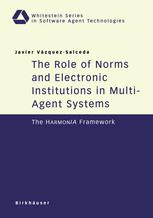

Most ebook files are in PDF format, so you can easily read them using various software such as Foxit Reader or directly on the Google Chrome browser.
Some ebook files are released by publishers in other formats such as .awz, .mobi, .epub, .fb2, etc. You may need to install specific software to read these formats on mobile/PC, such as Calibre.
Please read the tutorial at this link: https://ebookbell.com/faq
We offer FREE conversion to the popular formats you request; however, this may take some time. Therefore, right after payment, please email us, and we will try to provide the service as quickly as possible.
For some exceptional file formats or broken links (if any), please refrain from opening any disputes. Instead, email us first, and we will try to assist within a maximum of 6 hours.
EbookBell Team

4.7
66 reviews"It is not the consciousness of men that defines their existence, but, on the contrary, their social existence determines their consciousness." Karl Marx In recent years, several researchers have argued that the design of multi-agent sys tems (MAS) in complex, open environments can benefit from social abstractions in order to cope with problems in coordination, cooperation and trust among agents, problems which are also present in human societies. The agent-mediated electronic institutions (e-institutions for short) is a new and promising field which focuses in the concepts of norms and institutions in order to pro vide normative frameworks to restrict or guide the behaviour of (software) agents. The main idea is that the interactions among a group of (software) agents are ruled by a set of explicit norms expressed in a computational language representation that agents can interpret. Such norms should not be considered as a negative constraining factor but as an aid that guides the agents' choices and reduces the complexity ofthe environment making the behaviour of other agents more predictable.